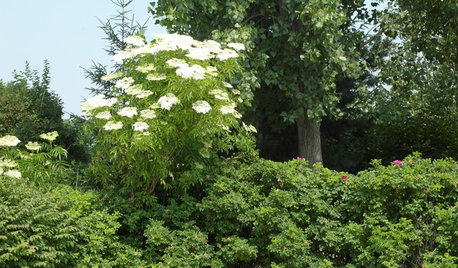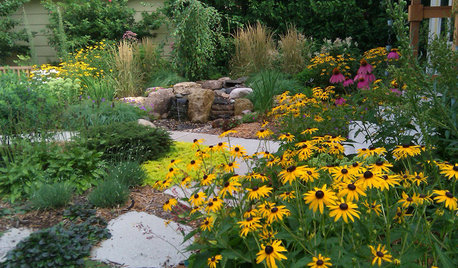WANTED: It's against the law to possess certain plants in Texas
ltcollins1949
14 years ago
Related Stories

FARMHOUSESHouzz Tour: German Tradition Deep in the Heart of Texas
Rooted in architecture from the 1800s, this award-winning home mixes history with the vernacular of today
Full Story
HOUZZ TOURSMy Houzz: A DIY Gold Mine in the Heart of Texas
From a sawn-down sleigh bed to book pages as wallpaper, the projects in this home are a testament to the homeowners' ingenuity
Full Story
FUN HOUZZ10 Things People Really Don’t Want in Their Homes
No love lost over fluorescent lights? No shocker there. But some of these other hated items may surprise you
Full Story
GARDENING GUIDESGreat Design Plant: Sambucus Nigra
Common elderberry is a highly adaptable shrub from the eastern U.S., with berries galore for wildlife and humans alike
Full Story
WORKING WITH PROSWhat Do Landscape Architects Do?
There are many misconceptions about what landscape architects do. Learn what they bring to a project
Full Story
DECORATING GUIDESCalifornia Law: License to Practice Interior Design?
A proposed bill that would require a license to practice interior design in California has Houzzers talking. Where do you stand?
Full Story
FLOWERSRudbeckia Mania: Go Beyond Black-Eyed Susan in the Garden
Branch out from typical nursery fare, with lesser-known Rudbeckia species that have delightfully unexpected features
Full Story
HOUZZ TOURSMy Houzz: Creative Thrifting Beautifies a Texas Bungalow
Secondhand finds and a designer’s gift for reinvention turn a historic-district house into a quirkily elegant family home
Full Story
HOUZZ TOURSHouzz Tour: Modern Renewal for a Tired Texas Ranch
This major makeover involved additions, layout changes and a new facade. See the stunning results here
Full StorySponsored







Lin barkingdogwoods
freshair2townsquare
Related Professionals
Arnold Landscape Architects & Landscape Designers · Wakefield Landscape Contractors · Bellefontaine Neighbors Landscape Contractors · Canby Landscape Contractors · South Farmingdale Landscape Contractors · Tewksbury Landscape Contractors · Shenandoah Landscape Contractors · Columbia Roofing & Gutters · American Fork Fence Contractors · Compton Fence Contractors · East Peoria Fence Contractors · Hammond Fence Contractors · Northlake Fence Contractors · Thousand Oaks Fence Contractors · Foster City Fence Contractorsltcollins1949Original Author
ltcollins1949Original Author
serenitymoon
txaggiegirl